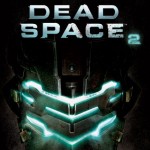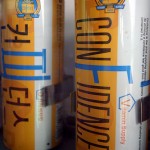
Laser shark: If it was robotic and in space, it’d be the perfect web story Credit: Jesse McGibney, http://mcgibs.iseenothing.com/
The perfect story to drive traffic to a website would be about “robot laser sharks in space,” according to Alexis Madrigal, senior editor and technology writer for TheAtlantic.com.
We listened to Alexis talk via Skype, for our social media class. Most of the talk was about how we could use Twitter, but I was struck by his thoughts on writing for the web.
Alexis used to work for Wired Science before, and talked about evolving Wired.com’s science coverage from really short, snarky pieces (the Gawker model), to slightly longer blogposts– accurately reported, but still fun enough that they got spread around the internet and read.
I guess in the age of Facebook ‘Like’s and Retweets, it’s easy for a story to go viral.
His point about the robot sharks, was that it’s worth considering the reader perception. Sometimes it makes sense to say ‘robot’, rather than a longer technical term, both because people connect with it, but also because it gets spread.
I got a surprise, however, when he talked about articles on The Atlantic’s blog; Alexis said people really enjoyed reading really long pieces.
So much so that they found a direct correlation between traffic and length. In fact, he said their most successful pieces were 3000 word syllabuses from professors, with included reading lists.
I thought that was pretty amazing. Certainly the assumption in a lot of web and blog writing is that short, snarky pieces are thought to be the only successful way to get traffic.
It was nice to hear that people will read longer pieces even on the web. (That’s something that I also read about Slate.com).
Of course, it is for The Atlantic’s blog. I couldn’t find their reader demographics online, but The Atlantic print magazine’s readers average age is around 50 (according to the 2010 report of the Pew Project for Excellence in Journalism).
That’s probably slightly older than the average Gawker reader…
Updated 10/9/10 at 11:50 p.m.: After looking around the internet for a picture of a Robot Laser Shark in Space, I had to settle for this picture of a cybernetic laser shark, by Jesse McGibney.
If anyone comes across (or has the time to create/Photoshop) a better picture of a robot laser shark in space, do send it along, that would be pretty awesome.







Wow! I’ll have to keep that in mind. I have a blog that is dedicated to writing stories. I normally write short so that people don’t get bored, but maybe I’ll start experimenting!
Thanks for the Post!
-Danny
http://writeos.wordpress.com
Thanks! When you think about it, the web is perfect for longer stories. Unlike newspapers and magazines, it lacks the physical constraints of a printed page.
Admittedly, for a lot of writing, those constraints are good, they force you to really be concise and edit aggressively. But there’s a lot of stories that do need more space, and maybe there should be more of those available on the internet. At least now I know there’s an audience for them!
I will note, however, that Alexis did say the stories that did worst in terms of traffic were the mid-range ones, so it seems one has to either go short or go long, there’s not much demand for things in between.
All I want are sharks with frickin’ laser beams attached to their heads. In space. And they’re robots. love, slugnads
I *totally* see how that would draw traffic.
But I think we can find those elements in most stories — the trick is writing about them in a friendly way…and that’s why we’re here! I really believe that most stories offer something for everyone, and as Donna said in her post — that’s why our job is awesome. We get to keep learning about all these things we might otherwise have no exposure to.
Also, though I’m somewhat of a snark-demon myself…the web’s facilitation of longer stories is very appealing. Plus, there are all kinds of multimedia bonuses that won’t work in print — photos, videos, audio — and that’s exciting.